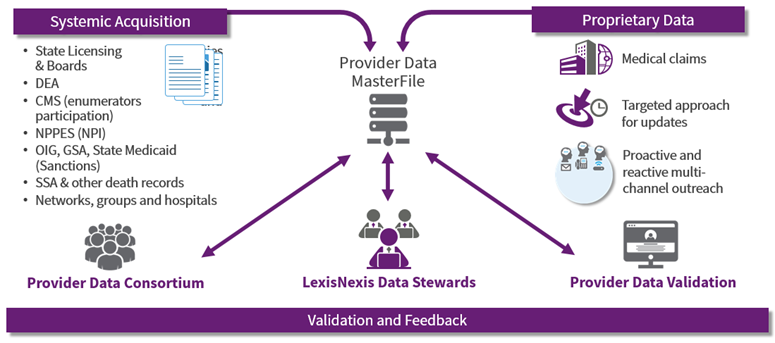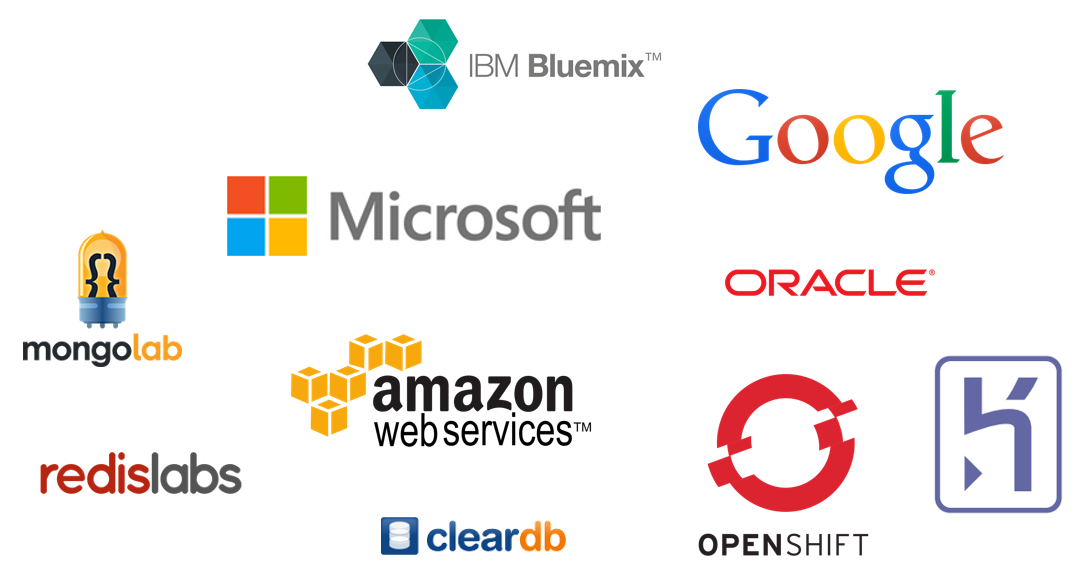Selecting the Right Database Provider for Your Organization Requirements
Selecting the Right Database Provider for Your Organization Requirements
Blog Article
Trick Attributes to Try To Find When Picking a Database Provider
Picking a data source supplier is a crucial decision that can dramatically affect your company's data and operations monitoring method. Amongst the essential attributes to consider are scalability choices, which make sure that your system can adapt to expanding needs.
Scalability Options
When choosing a database company, comprehending scalability options is critical to making certain that the chosen solution can suit future development. Scalability describes the capacity of a data source system to expand its capacity and performance in reaction to increased need. There are 2 key sorts of scalability: upright and horizontal.
Vertical scalability, or "scaling up," includes boosting a single server's sources, such as CPU, RAM, or storage space. This approach can be affordable and simple for smaller sized applications yet might reach a limitation where even more upgrades are too pricey or impractical.
Horizontal scalability, or "scaling out," entails adding more servers to distribute the tons. This approach permits higher versatility and can accommodate significant increases in data volume and user traffic (database provider). It is especially beneficial for cloud-based database services that can dynamically designate sources based upon demand

Safety And Security Actions

When reviewing safety procedures, consider the execution of encryption protocols (database provider). Data-at-rest and data-in-transit encryption are necessary to guarantee that sensitive info remains secured, even in case of a safety violation. Additionally, try to find providers that provide solid verification devices, such as multi-factor authentication (MFA), to additionally improve gain access to control
Regular safety and security audits and compliance with market criteria, such as GDPR or HIPAA, are a measure of a company's dedication to information security. Furthermore, ask about their case feedback plan; a durable strategy can lessen the effect of any kind of potential protection case.
Performance Metrics
Evaluating efficiency metrics is vital for companies to make sure that their picked data source supplier fulfills operational needs. Secret efficiency metrics consist of action time, scalability, and throughput, which jointly identify the efficiency of data source operations under differing loads.
Response time is essential, as it reflects just how promptly the database can refine queries and return outcomes. Organizations must seek metrics that suggest average feedback times throughout height and off-peak hours. Throughput, typically determined in deals per second (TPS), gives insight into the data source's capability to handle high volumes of demands without performance degradation.
Scalability evaluates the data source's capability to grow with the organization's demands. A robust database service provider ought to show upright and horizontal scaling abilities, enabling seamless changes as demands change. Additionally, understanding latency, especially in distributed systems, can assist organizations evaluate the responsiveness of the data source across different geographical areas.
Client Support
Trusted client support is a cornerstone of reliable database monitoring, giving companies with the help needed to deal with concerns and enhance efficiency. When choosing a database copyright, reviewing the level of consumer assistance they use is important. A robust support group ought to include multiple channels of communication, such as phone, email, and live conversation, ensuring that customers can access help whenever they need it.
In addition, responsive assistance groups that are offered 24/7 substantially enhance the integrity of the database service. Prompt response times and effective resolution of problems can substantially minimize downtime and boost total performance. It is additionally advantageous to take into consideration the accessibility of committed assistance workers, who can supply tailored support based on a company's details demands.

Rates Framework
When taking into consideration a data source company, the pricing structure is a crucial aspect that can substantially affect a company's budget and general method. A flexible and transparent prices model is necessary for straightening the database sets you back with service requirements - database provider. Organizations should evaluate whether the pricing is based on usage, per individual, or a flat price, as each version can yield various monetary effects with time
It is necessary to evaluate any added expenses connected with the Source copyright's solutions, such as information storage space charges, transaction expenses, and assistance charges. Some companies might provide tiered prices, permitting scalability as the organization grows, while others may impose strict restrictions that could come to be pricey as data demands enhance.
Additionally, organizations must consider the lasting value of the data source remedy. While reduced first rates can be appealing, they might not make up future upgrades, upkeep costs, or assimilation expenses. Carrying out a detailed cost-benefit analysis will certainly aid recognize one of the most suitable pricing structure that balances scalability, support, and performance, ultimately guaranteeing that the chosen data source service provider aligns with the company's economic and functional objectives.
Final Thought
To conclude, selecting a database supplier necessitates mindful consideration of various crucial functions. Scalability options make certain adaptability to future development, while robust safety and security procedures safeguard sensitive info. Assessing efficiency metrics allows the identification of efficient data sources, and easily accessible consumer assistance improves the general customer experience. A transparent rates structure better contributes to educated decision-making. By extensively analyzing these variables, organizations can make critical options that align with their read here operational requirements and long-term goals.
Picking a data source copyright is a vital choice that can dramatically impact your company's operations and data monitoring strategy.When selecting a database copyright, recognizing scalability options is essential to guaranteeing that the picked service can fit future growth. When choosing a database copyright, evaluating the degree of customer assistance they supply is necessary.When taking into consideration a data source company, the prices structure is a pivotal factor that can considerably affect a company's budget plan and overall approach. Performing a detailed cost-benefit evaluation will certainly help recognize the most ideal prices framework that stabilizes performance, support, and scalability, ultimately ensuring that the picked database copyright lines up with the organization's functional and monetary objectives.
Report this page